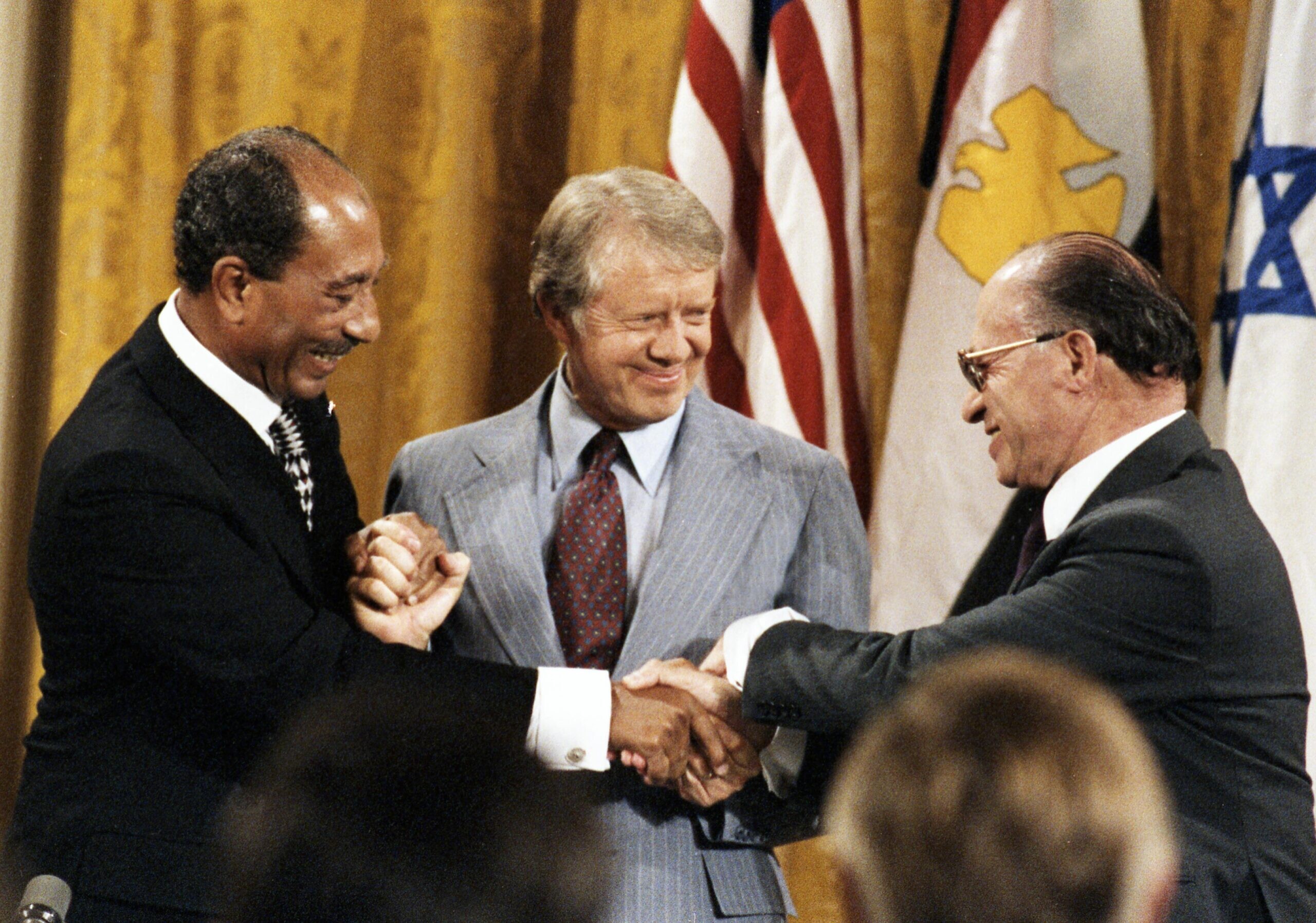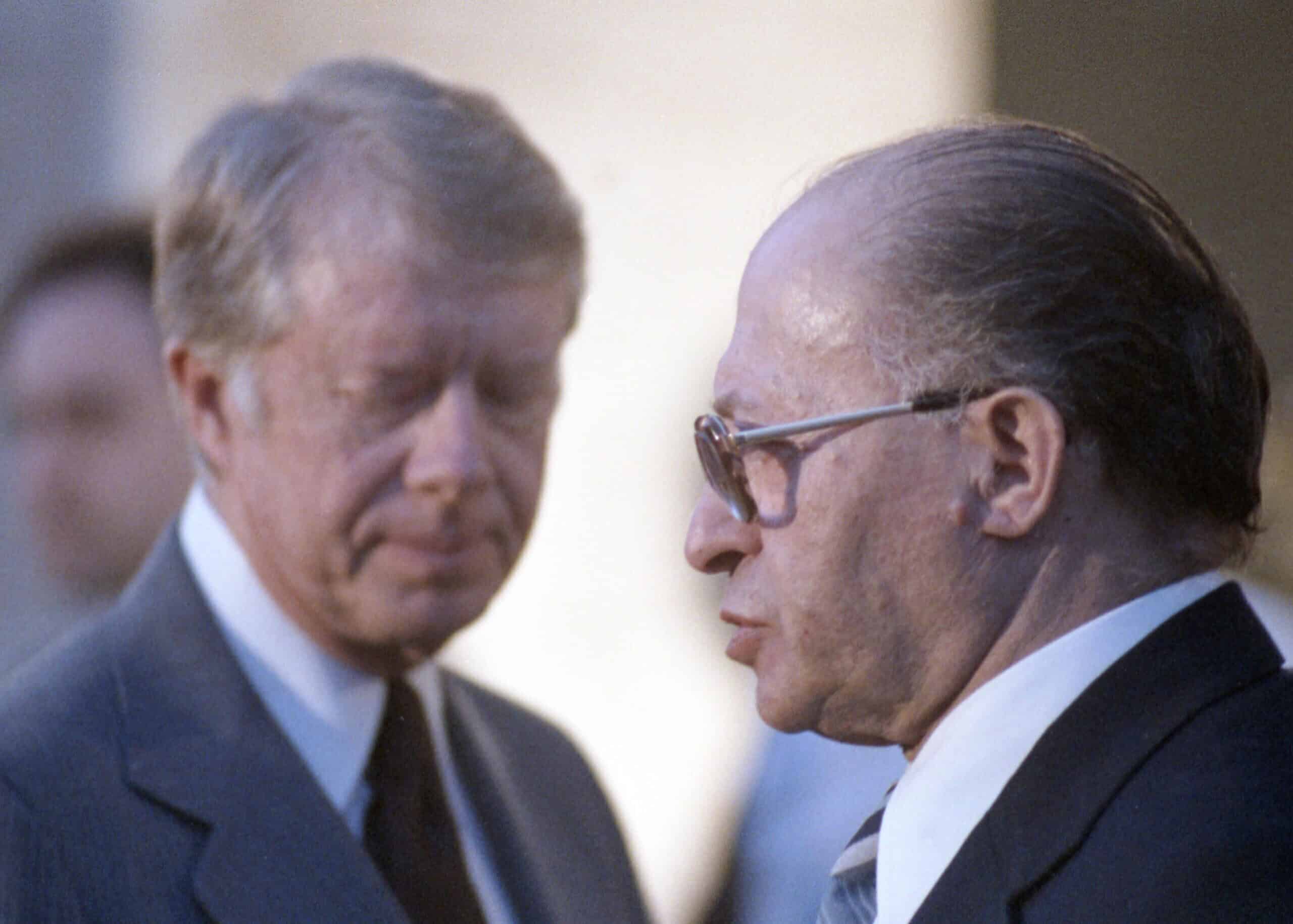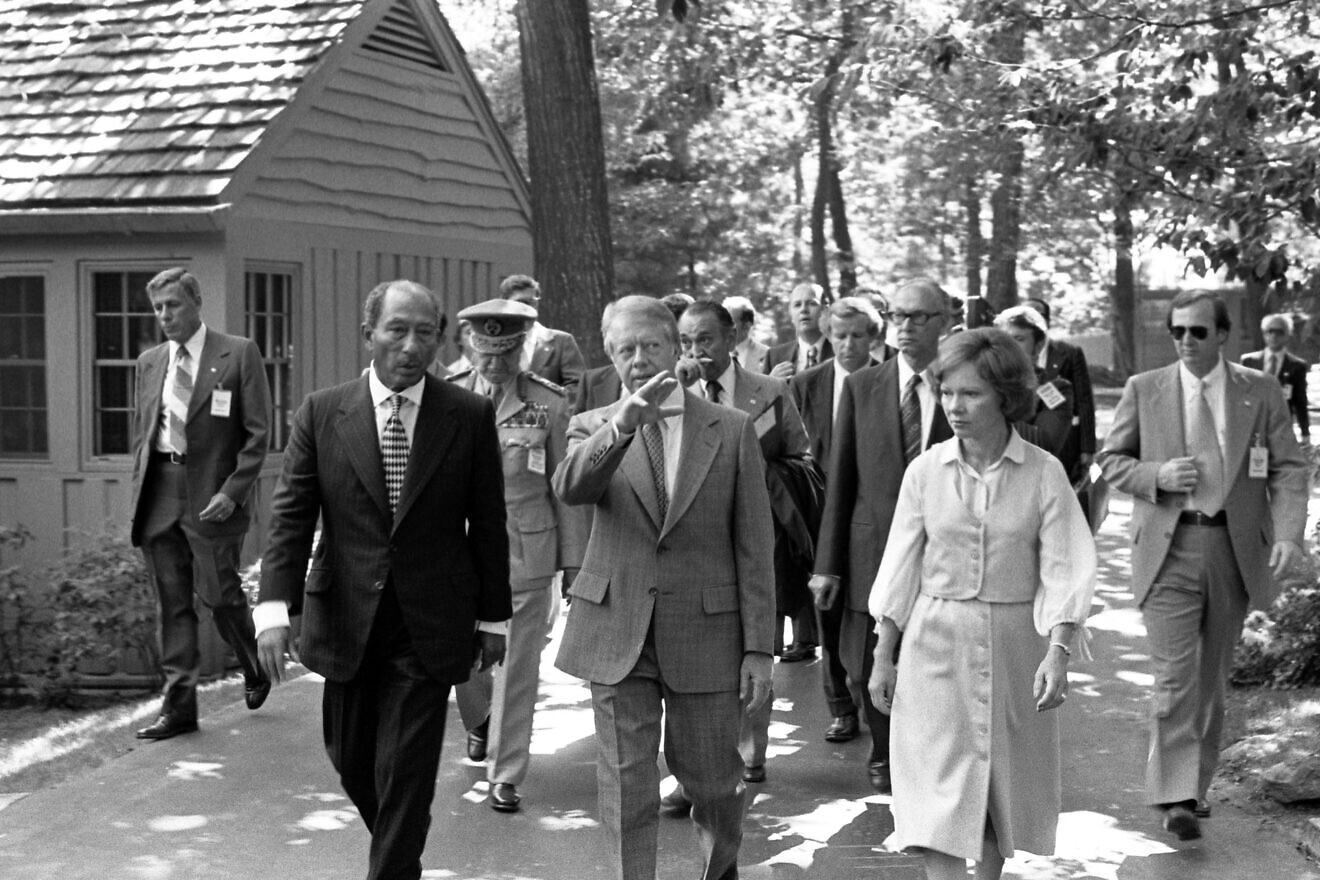In a Dec. 29 statement, U.S. President Joe Biden referred to former President Jimmy Carter, who had just died at 100, as an “extraordinary leader, statesman and humanitarian,” who had “compassion and moral clarity” and “saved, lifted and changed the lives of people all across the globe.”
“What’s extraordinary about Jimmy Carter,” Biden added, “is that millions of people throughout America and the world, who never met him, thought of him as a dear friend.”
Experts told JNS that Carter is likely to have a far more complicated legacy over time, particularly among Jews.
“I think that he got progressively worse on the Israel question after his presidency,” the presidential historian Tevi Troy told JNS. “I think he was bitter about how he lost the Jewish vote, since Reagan got a higher percentage of Jewish votes than any Republican president since Eisenhower, and the Jewish community has been very critical of Carter for a good reason.”
Troy, a fellow at the Ronald Reagan Institute and author, most recently, of the book The Power and the Money about the “epic clashes” between presidents and industry titans, told JNS that Carter’s negative reputation in the Jewish community is deserved.
“I think everyone across the community was unhappy with this book, Palestine: Peace Not Apartheid, and I think it was really inappropriate for him to use the ‘apartheid’ word in conjunction with Israel since it is not accurate,” Troy said.
“In his book, he was also angling to make Hamas a legitimate partner, which clearly they are not,” he added. “I think he was just strategically wrong on Israel.”s
Troy told JNS that pro-Isarel Carter administration advisers, like then Vice President Walter Mondale and Stuart Eizenstat, “mitigated his antipathy” towards Israel. But after he left office, Carter developed an increasingly critical attitude toward the Jewish state.
“Carter took a lot of money from hostile to Israel Middle Eastern sources for the funding of his Carter Center,” Troy said. “He got worse over time.”
Troy told JNS that Carter is rightly criticized for a poor presidency and that “there is this cliché that he was a good ex-president.”

“I’m not sure he was, not just because of the slander on Israel and apartheid, but because of the way he interfered with the foreign policy aims of his successors, both Democrats and Republicans, who often resented him for it,” Troy said.
Morton Klein, national president of the Zionist Organization of America, told JNS that Carter helped legitimize the idea of accusing the Jewish state of apartheid.
“Jimmy Carter deserves the credit for normalizing this vicious antisemitic lie against Israel, and we should never forget what he did,” Klein said. “In addition, in his book, Palestine: Peace Not Apartheid, he legitimized terrorism and stated more or less that terrorism is the only way the Arabs can get what they deserve.”
Klein told JNS that Carter is unfairly praised for his role in helping Israel negotiate the Camp David Accords because the peace agreement required Israel to make costly concessions.
“Carter pressured Israel relentlessly to give away the four oil wells in the Sinai that Israel had developed, even though Israel did not want to give them away,” he said. “Israel would now be earning $10 billion a year from oil had they kept those oil wells, and we should never forget that Carter pressured Israel against Israel’s will.”
“Carter pressured Israel to throw out 5,000 Jews from Yami, a Jewish town in the Sinai, and this led to Sharon throwing out 10,000 Jews from Gaza and northern Samaria,” Klein added. “If Begin had not thrown out the Jews from the Sinai, it would have been very hard for Sharon to have made the terrible mistake of throwing Jews out of Gaza and Sinai.”
“I think the Sinai peace agreement is at best a mixed bag,” Klein said.
Esther Panitch, the only Jewish member of the Georgia state government, told JNS that Carter holds “a historic place in Georgia’s history and the nation’s history” as the only U.S. president elected from the state to date.
Panitch, a pro-Israel Democrat, noted that when one lives to 100, “you’re going to do things.”

“Who doesn’t want to have lived a complicated life by the time they’re 100? He’s got a complicated legacy, and I think many things can be true at the same time,” she told JNS. “He did great things, eradicating Guinea worm,” an infection carried by a parasite, she added. “He did great things with the Camp David Accords.”
One of Panitch’s earliest memories is watching the accords on television in the late 1970s. “Until then, all the Arab countries ever did for Israel was try to destroy it,” she told JNS. “To have some optimism coming from one of the major countries was very impactful for me, and I always gave him credit. He was the president. He brokered the deal.”
“There was economic strife while he was president. Interest rates were crazy. He also didn’t get back the American hostages from Iran, which was a loss for him as a president even though they came back right after,” Panitch said. “I think people thought he was a good person even if he wasn’t a great president.”
“You want somebody who’s got character,” she added. “But then when he wrote his book, even though he later apologized for some of it, the damage was done with that title. And even though he later claimed ‘apartheid’ wasn’t what Israel was at the time, he was concerned it would be in the future.”
“The damage was done the moment that book came out,” Panitch told JNS. “He gave cover, even though that’s not what he said he meant, for every antisemite to now say, ‘Look, a president agrees with us.’ That is a challenge. We are still living with the impact of today.”
Carter did both “great things” and “also really did terrible things by the Jewish community,” according to the Georgia lawmaker.
“He has a complicated legacy. I certainly didn’t want to pile on on the day he died. He’s a man who had a significant impact on everyone’s life, for better or worse, and towards the end of his life, he did really good things for a lot of people,” she said. “I think, on balance, he’ll be remembered well by most people, but maybe not by the Jewish community.”























